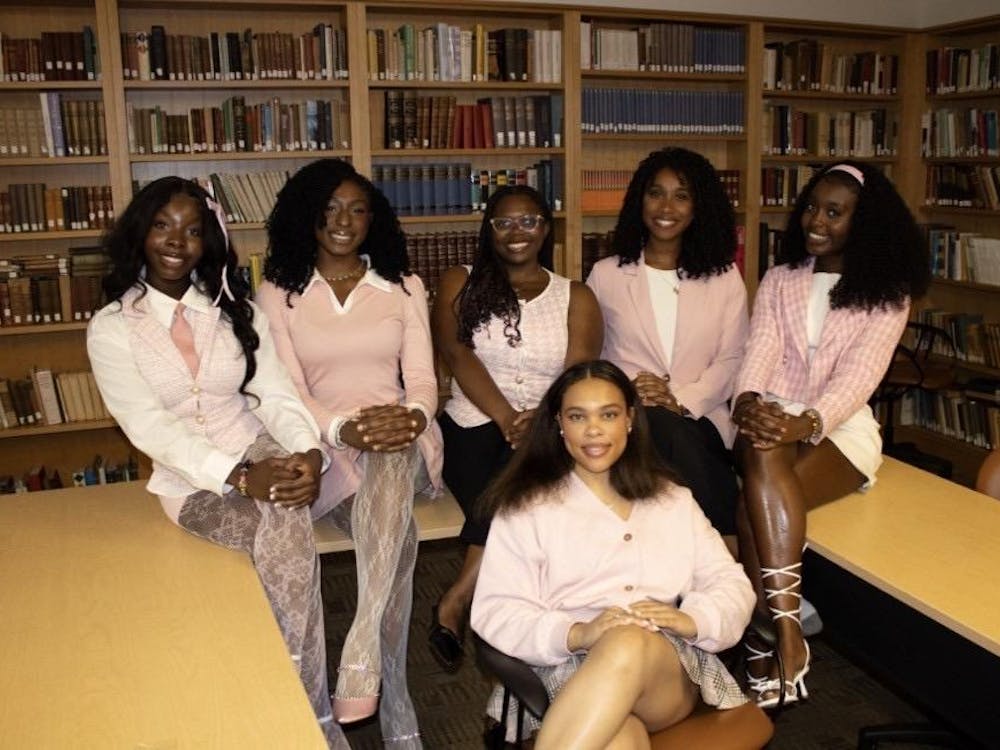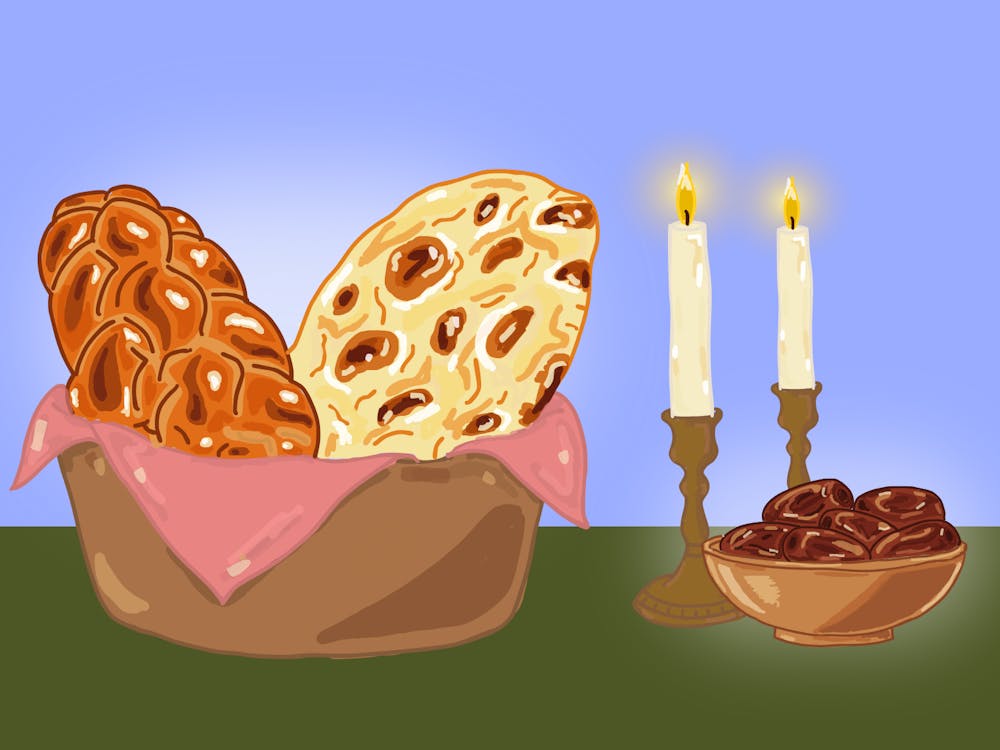WASHINGTON
Never has a gas station seemed so important. A place that was just two days ago a run-of-the-mill Citgo Mini-Mart catering to Pentagon employees and officials is now host to a sea of television vans, their cables pointing skyward like spindly fingers toward the gaping - and still smoldering - hole in the world's largest office building.
The infamous United aircraft that veered on a 270 degree course out of Dulles Airport smashed through three of the five rings of the Pentagon on Tuesday. But judging by the onlookers and tourists that remained sidelined with journalists nearly a quarter a mile away from the black-eyed scar of the building yesterday, it seems the crash could have been only hours ago.
The scene among these onlookers reflected the mood in much of Washington - silent and reverent. Most kept their eyes on the line of camouflage-green Red Cross vans that struggled along the lip of the office building under a canopy of cranes and other construction vehicles.
"I almost had a meeting in there yesterday," said Bob Britton, as a fleet of police cars rushed past the secured boundaries of yellow tape and orange cones behind him. "I've been in there about a hundred times."
Britton, who now lives in Brussels, works for NATO and was scheduled for a briefing inside the Pentagon - in the portion left intact - before yesterday's events transpired.
As Britton, who is still awestruck by the plane crash, gazed at the bruised building before him, he hypothesized about what might have happened in the minutes before the plane crashed.
"It must have been an expert, because nothing's been damaged at all," he said. "And that's so low to the ground - they had to have been some real pilots, I'll tell you."
Chris Reynolds, who works in and around the Pentagon and whose parents are buried across the street at Arlington Cemetery, does not believe the pilots were American, even if they were experienced.
Reynolds said he thinks the aftermath of this terrorist attack will be a drawn-out affair - perhaps the most drawn-out since Pearl Harbor - but the most important aspect remains that people he knows are safe.
"I had a buddy in there," he said. "I called him yesterday - I was afraid to at first - but I was tickled to death when he picked up the phone."
A state trooper strolls down the line of onlookers to prevent eager souls from sliding under the yellow tape to venture closer to the scene.
As he passes, a young blue-eyed man, cigarette in hand, mentions that he still hasn't gotten tired of gazing at the sight - even after remaining in this same spot for hours.
"Me and my dad, we ran by this yesterday," said Frank Mashuda Jr. of Arlington. "When we looped back around, we saw it burning - from a distance it looked like half the building was on fire."
Mashuda added that after his jog and watching the flame smolder well into the night from his nearby apartment building, the day-after scene looked diminutive in comparison.
The heart of the matter
The only thing small-scale on Capitol Hill was the number of people meandering around the grassy lawn and carefully manicured sidewalks. What was much larger, however, was the silence.
Only a few members of Congress dribbled down the front steps, and tight security kept most tourists and press officials banded around the perimeter, waiting eagerly for any news to spring from the session convening inside.
"I just wonder what's happening inside," said Stephen Rothschild, a native of the San Francisco Bay area who was in the nation's capital on business with his wife, Natalia. "I just feel so sealed off from whatever's really going on."
Rothschild said he and his wife had ventured downtown from their hotel to see if they could sit in on Congress. Rothschild conceded, however, that he was surprised security was not any more tight than it was.
"I was amazed that we could even get this close," Rothschild said, his freckled hand shielding his eyes as he stared up at the curved cranial dome of the Capitol. "I thought there'd be droves of security personnel everywhere, but the truth is that you can walk all the way up to the entrances."
Rothschild said that what had been most significant about his trip so far - other than his conference being canceled - was the atmosphere of the usually bustling political epicenter of the Western world.
"People are anxious and concerned. They're immobilized. They're impotent," he said.
He leans back on the marble banister overlooking the Western side of the city, the Mall vacant, the pummeling of a sledgehammer scissoring through the sky as if in an empty room.
Rothschild thinks this scene of complacency, in the aftermath of both terrorist attacks, is almost worse than the initial shock of yesterday.
"My own feeling is that I am more concerned now than I was yesterday," he said. "Somehow everything seems more secret now, as if it hasn't been resolved. It seems like a lot of officials know a lot more than they let on."
Desolate
Joe Charrys drives amid ambulances and shiny black Secret Service SUVs on Independence Avenue. But other than that, he said, "It's very, very quiet."
While he usually chauffeurs about 30 passengers on a typical Monday on the Hill, Charrys said the numbers today are in the single digits.
"There are people on the street, but not like usually," Charrys said, combing his stout fingers through his silvering hair. "Maybe some are taking off, maybe some are really just scared."
And perhaps they are scared, more of the permanence of the black hole in the Pentagon than of the possibility of another attack. But if anything, the streets of Washington perpetuate those images - those of war and destruction.
Military police are stationed in Humvees on most corners of the bustling business districts. District police lean over the open cradle where Metro trains run side by side, vigilant, outfitted in bright orange vests and fat revolvers slung about their hips.
Even with the news of thousands of casualties taken on American soil by a seemingly invisible enemy, for many, the facts still have not yet become a reality.
"I turned on my radio. I turned on my TV as soon as I got up this morning. I think I was afraid I'd forget - or think it was a dream - but it was still there," a woman whispered to her companion on the Metro, clasping her shoulders, as if chilled by an eerie force.






